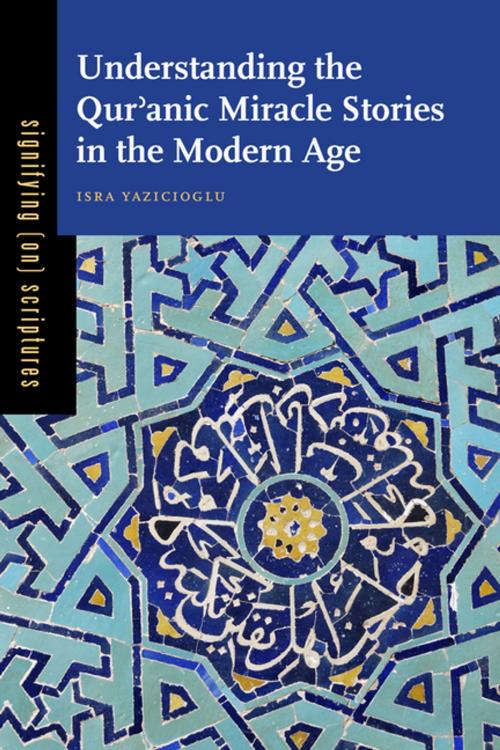Understanding the Qurʾanic Miracle Stories in the Modern Age
Nonfiction, Religion & Spirituality, Middle East Religions, Koran, Philosophy, Religious, Islam| Author: | Isra Yazicioglu | ISBN: | 9780271070032 |
| Publisher: | Penn State University Press | Publication: | November 25, 2013 |
| Imprint: | Penn State University Press | Language: | English |
| Author: | Isra Yazicioglu |
| ISBN: | 9780271070032 |
| Publisher: | Penn State University Press |
| Publication: | November 25, 2013 |
| Imprint: | Penn State University Press |
| Language: | English |
Understanding the Qurʾanic Miracle Stories in the Modern Age explores the ways in which meaningful implications have been drawn from stories of miracles in the Qurʾan. Isra Yazicioglu describes the fascinating medieval Muslim debate over miracles and connects its insights with early and late modern turning points in Western thought and with contemporary Qurʾanic interpretation. Building on an apparent tension within the Qurʾan and analyzing crucial cases of classical and modern Muslim engagement with these miracle stories, she illustrates how an apparent site of conflict between faith and reason, or revelation and science, can lead to fruitful exchange.
A distinctive contribution to a new trend in Qurʾanic studies, this volume reveals the presence of insightful Qurʾanic interpretation outside of the traditional line-by-line commentary genre, engaging with the works of Ghazali, Ibn Rushd, and Said Nursi. Scholars of Islam, philosophy, and the intersection of science and religion will especially want to engage with Yazicioglu’s study.
Understanding the Qurʾanic Miracle Stories in the Modern Age explores the ways in which meaningful implications have been drawn from stories of miracles in the Qurʾan. Isra Yazicioglu describes the fascinating medieval Muslim debate over miracles and connects its insights with early and late modern turning points in Western thought and with contemporary Qurʾanic interpretation. Building on an apparent tension within the Qurʾan and analyzing crucial cases of classical and modern Muslim engagement with these miracle stories, she illustrates how an apparent site of conflict between faith and reason, or revelation and science, can lead to fruitful exchange.
A distinctive contribution to a new trend in Qurʾanic studies, this volume reveals the presence of insightful Qurʾanic interpretation outside of the traditional line-by-line commentary genre, engaging with the works of Ghazali, Ibn Rushd, and Said Nursi. Scholars of Islam, philosophy, and the intersection of science and religion will especially want to engage with Yazicioglu’s study.















